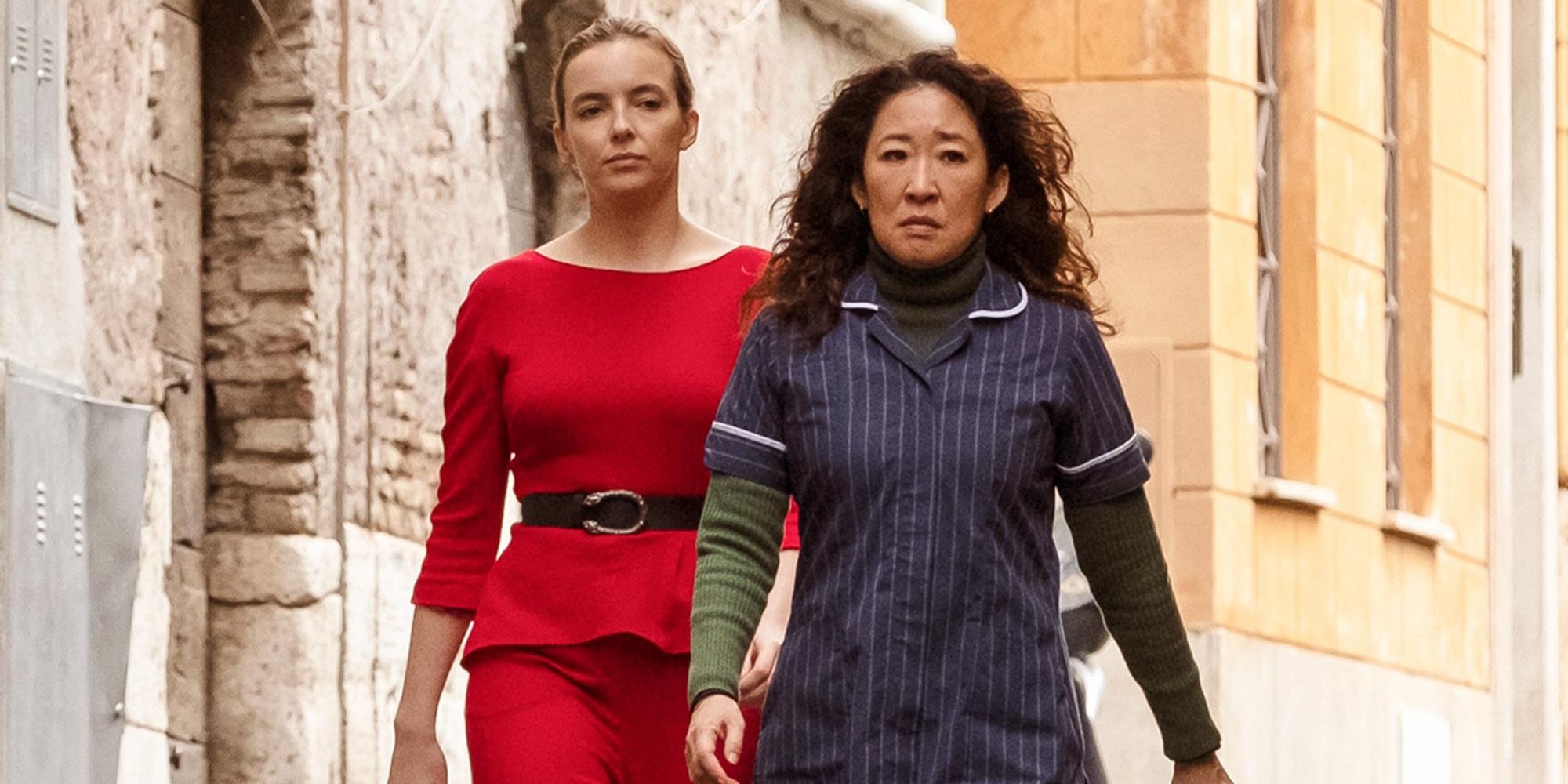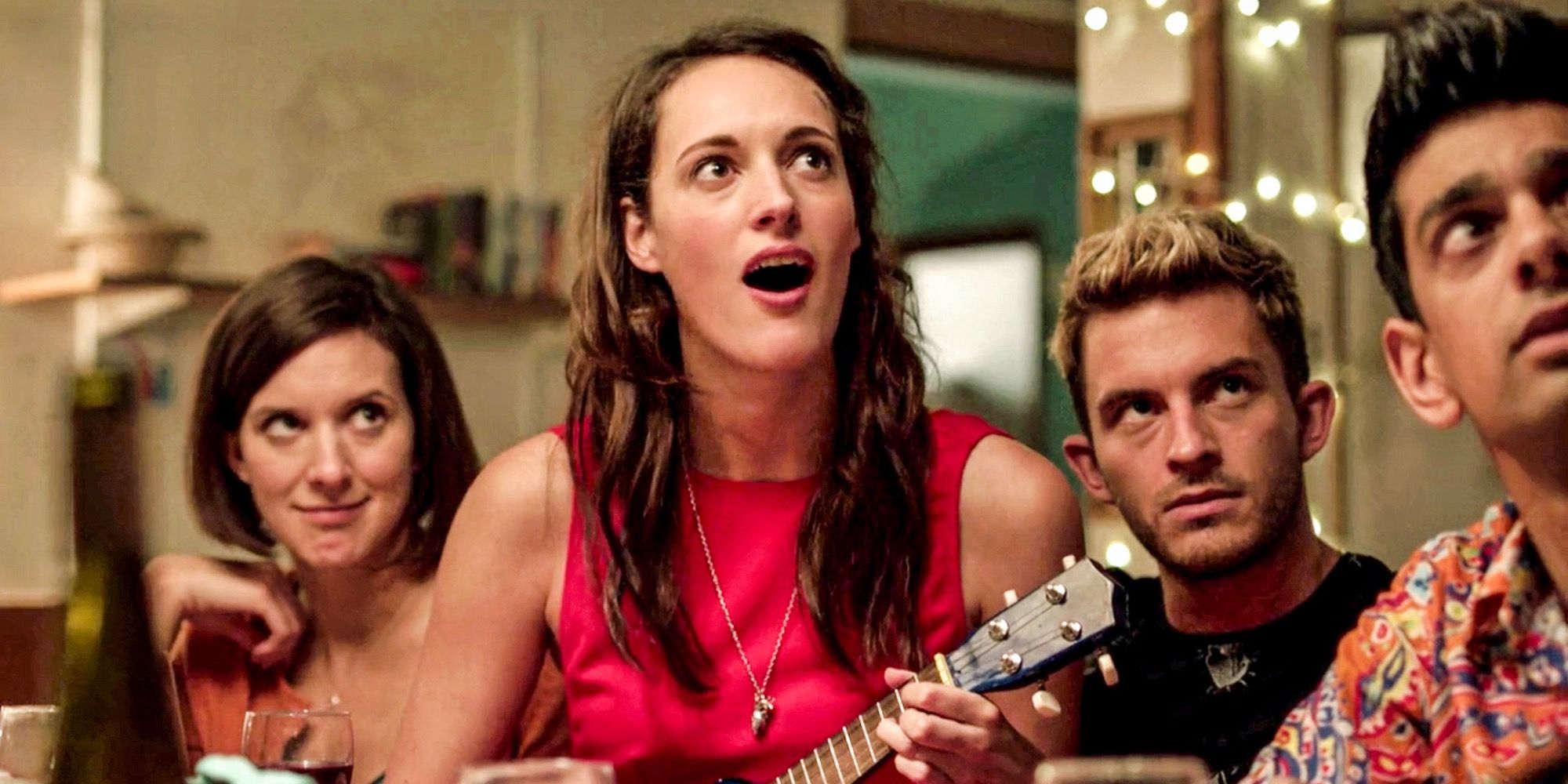While Phoebe Waller-Bridge has been propelled into the big leagues with writing credits on the newest James Bond and the upcoming Tomb Raider TV series for Amazon Prime, her writing chops have been evident since her more humble beginnings. Her early characters, such as Eve and Villanelle on the critically-acclaimed BBC show Killing Eve, Lulu and Anthony in Netflix's Crashing, and the title character of Amazon Prime/BBC Three's Fleabag display blockbuster-worthy depth and humor.
Luckily, Waller-Bridge has been recognized for her talent in recent years. In 2019 there were 11 Emmy nominations for Fleabag Season 2 and 9 nominations for Killing Eve. The success of Killing Eve is actually what caused many to discover Fleabag, despite its earlier release date, but now both are getting much-overdue recognition. Her writing combines her trademark laugh-out-loud punchiness with poignant commentary about the female experience that makes for unique and underrated characters.
Pinpointing the Female Experience
Fleabag (played by Waller-Bridge) is the quintessential woman fighting through her early thirties. She is unapologetically raunchy and quick-witted, yet deeply flawed, all of which makes her character so lovably real. And throughout not only Fleabag's experiences but those of the other female characters is an undercurrent of desire—the desire to be understood, loved, and free.
One of the most repeated quotes of Fleabag comes from Season 2, Episode 3, when Fleabag sits at a bar with a successful woman in business (Kristin Scott Thomas), who tells her, “Women are born with pain built in. It’s our physical destiny: period pains, sore boobs, childbirth, you know. We carry it within ourselves throughout our lives, men don’t." The cycle goes on for years and years, she says, until menopause. “And yes, your entire pelvic floor crumbles and you get f***ing hot and no one cares, but then you’re free, no longer a slave, no longer a machine with parts. You’re just a person.”
This quote proved to be extremely related to many women, and for good reason. Waller-Bridge has a unique way of pinpointing the female experience in lines that are funny and biting, yet deeply truthful. This moment offers a breath, a reminder of that aching desire women have to be seen as just people. It appears in many of Fleabag's experiences, in her sister's frustrating marriage, and is voiced here by Thomas's character. While she only appears briefly, Thomas provides the casual wisdom of a woman who has seen it all, yet whose sense of humor and vigor remains intact. She has a taste of the kind of actualization Fleabag seeks.
A Deep Understanding of Relationships
Another one of Waller-Bridge's writing superpowers is female relationships, whether between friends, lovers, or family. In Killing Eve, Eve Polastri (Sandra Oh) has a series of complicated relationships, mainly with her husband Niko (Owen McDonnell) and Villanelle (Jodie Comer), that are honest, funny, and overall relatable. Eve's dialogue with her husband—filled with tenderness, humor, and a certain dissatisfaction—explores many of the unsaid, complex experiences of marriage. Eve's hunger for intrigue and danger (which is arguably one of her character's faults as well) leads her to Villanelle (and with that, another layered relationship). Villanelle is another story. She is the ultimate female anti-hero to the extreme, but we cannot help but root for her in a sense as well. Their relationship is naturally strained, as Villanelle is a contract assassin, but Waller-Bridge takes the tension deeper. Eve and Villanelle's relationship is unlike anything previously seen on television. Not only are there queer undertones (or really, overtones) throughout their game of cat and mouse, but Eve's desire to catch Villanelle morphs into almost an admiration of her capabilities and mind. While the circumstances are not commonplace, Eve's quick wit and smarts mixed with deep and complex desires paint a picture of unapologetic womanhood.
Every relationship that Fleabag has is relatable. From the tension with her sister (Sian Clifford), to the cool resentment of her father's girlfriend (Olivia Colman), to her various sexual escapades, Fleabag covers almost every complicated relationship dynamic. Waller-Bridge also has a keen grasp on female desire. Another of the most talked-about aspects of Fleabag is the "hot priest" played by Andrew Scott. His relationship with Fleabag is sexy and morally questionable, it's heart-wrenching, and quite frankly, it's so obviously written by a woman. What woman doesn't dream of someone coming into their life and understanding and accepting them wholly, only to remain tantalizingly out of reach? Her writing of male characters is equally skilled, and on shameless display with the hot priest. Waller-Bridge creates a portrayal of love that is tender, unapologetically sexual, and deep, all while keeping the integrity of the show's arc. Love might begin to heal Fleabag, but she must ultimately do the work on her own.
Leaning Into Morally Ambiguous Characters
Fleabag herself is perhaps the pinnacle of Waller-Bridge character writing. She is human and full of faults, which is what makes her so well-loved and relatable. Her various escapades cause her and those around her pain, but even when we don't like her, Waller-Bridge still makes us love her. We feel connected to Fleabag, whether because she breaks the fourth wall and lets us in on her most private thoughts, or simply because she makes the choices that we all either do make or want to make...but will not admit to. Fleabag's brokenness adds a realness not often found in comedy, and the poignancy of her growth only makes the purely comedic moments funnier. Any writer that can talk about grief and still make the audience laugh out loud is doing something right.
Crashing is one of Waller-Bridge's earliest works, and despite its lack of notoriety, it has several satisfying Waller-Bridge trademarks, including "forbidden" love akin to the hot priest arc. Waller-Bridge plays Lulu—a young woman reminiscent of Fleabag in her chaotic and raunchy demeanor—who moves into a condemned hospital with her childhood friend Anthony (Damien Molony), his fiancé, and their friends. The show revolves around the immediately obvious sexual tension between Lulu and Anthony despite Anthony's engagement, and, despite the ethical implications, you can't help but root for them. Waller-Bridge creates such a rich tension between the pair, yet again using a brutally honest portrait of womanhood and love to amplify the humorous moments. All the characters' poor decisions only leave them that much more room to be redeemed in the audience's eyes.
In Killing Eve, Eve's moral compass is always spinning, and we get to watch the fascinating character arc of a woman torn between responsibility and morally questionable pursuits. While Villanelle's morals are obviously questionable (as assassins are), Eve works for the government, and therefore should be morally straight-laced, right? Wrong! She's human, and that is the idea Waller-Bridge is almost always alluding to. No matter how good we strive to be, we are all human, equipped with faults and shortcomings. All we can hope to do is try to be better, and laugh a lot along the way.



